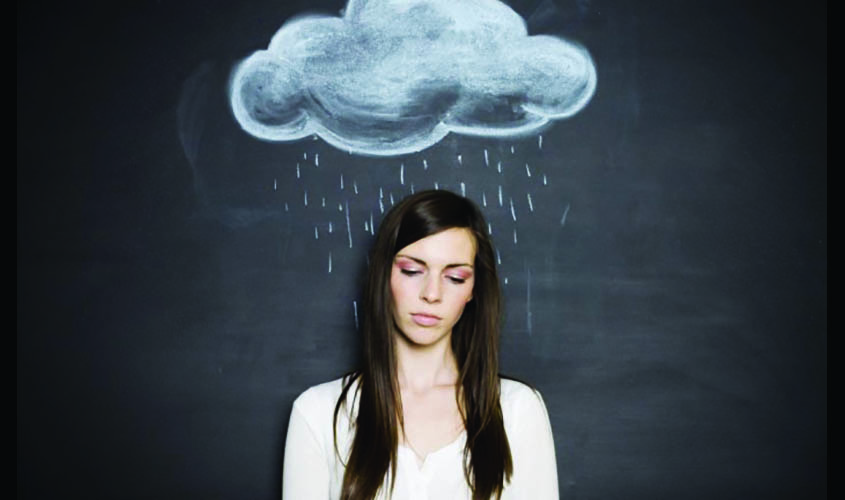Rainy season brings with it a host of skin and hair problems. Fungal and bacterial infection, acne breakouts, facial folliculitis, ring worm, skin irritation, bug bites, sore feet are common problems across India during this time. Fungal infection with symptoms like peeling, cracking, and scaling of the skin also tend to rise. Often exposure to dirty water can result in contact dermatitis, which could manifest in the form of blistering red skin. Further, pollutants in the rain water can weaken the roots of hair and result in severe hair fall.
Some precautionary measures are necessary to prevent any long-term damage to your hair or skin. Here are some simple medical solutions and home remedies you can use to keep skin problems at bay.
Hydrate yourself: Some general misconceptions when not cleared can result in serious skin problems. Not hydrating your skin or not drinking enough water during this season can prove to be fatal. This is because you are sweating and losing as much water as you do in summers. So, staying hydrated is a must even when you don’t feel thirsty frequently. An adult’s fluid quota shouldn’t be less than 4-6 litres a day. Eating fresh fruits and vegetables, nuts are a must. Avoid eating oily and sugary food.
Wear a sunscreen: Even though, the sun might not shine as brightly, one must never skip wearing their sunscreen. Use a sun block of SPF 20 plus. Apply it 10-15 minutes before venturing out.
Shower, and stay dry: To avoid bacterial and fungal infections it is imperative to shower regularly and stay dry. In case of increased sweating due to intensive workout our daily routine should involve regular washing of key body parts and immediate drying. Make it a point to wear clothes that would easily dry and prefer cotton cloths over other materials.
Take care of your feet: This is particularly advised for men. They usually get sore foot because they wear boots and socks, which are moistened due to extreme humidity. Leaving a spare shoe and sprinkling antifungal powder daily inside socks when one leaves for work are easy ways to deal with this problem. Applying a cream containing cotrimazole or luliconazole on the first sign of redness helps. Women on the other hand, should avoid wearing leather or suede shoes to stay away from allergies. Comfy sandal of rubber or plastic should be the choice of footwear for the season.
Fight the infection: Use antibacterial soaps like Frolix, Medsop or Neem containing soaps to avoid rashes and infection. Apart from rain water causing itching, skin insect bites, bug rash, slight erythema and redness are also major skin woes. This can be dealt with some home remedies like using curd a few times daily for 3-5 days. Applying Lacto Calamine and Aloe Vera gel will help keep the skin allergy free.
Acne breakouts: Acne is common in monsoons for youngsters. That’s because of bacterial overgrowth on face. So, washing face with a good anti-acne facewash at least twice a day is a must. Plus, splash plain water on face few times through the day, or use mineral water sprinklers available at pharmacies. Using antibiotic gel on the zit is best as during monsoons pimples rigidly prevail over a long period of time due to high moisture content in the air. Home remedies are not effective in dealing with such rigid breakouts. To avoid any long-term residual pimple mark on your skin, it is better to use antibiotic gels containing Adapalene, Isotretinoin, Azithromycin will surely help.
Hair care: During monsoon season, we often experience more hair fall. Don’t oil your hair too often. To manage hair fall increase biotin in diet, and include egg whites, soya, paneer, tofu and lentils. Applying castor oil with crushed mustard seed powder as a pack overnight or for few hours before shampooing are good anti-hair fall remedies. Go for a shampoo that’s low on chemicals and suits your hair type. For treating dandruff, use a mix of lemon juice and olive oil to massage your scalp. It will restore your scalp’s pH balance. During rainy season, it’s best to go for a hair trimming once in a while.
While maintaining hygiene and eating a healthy diet are a must, do not dismiss skin irritations as minor monsoon problems. If a skin condition prevails visit a dermatologist instead of visiting a salon or a parlour. With early intervention, skin and hair problems can be easily tackled with some medication and topical solution.
Dr Deepali Bhardwaj is a leading dermatologist, anti-ageing and anti-allergy specialist

